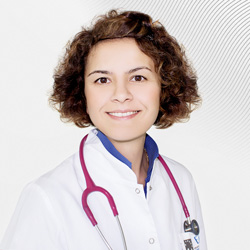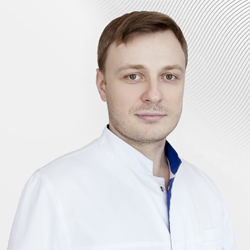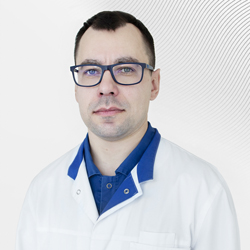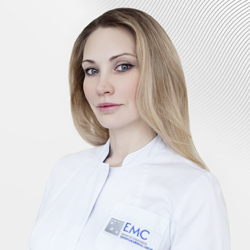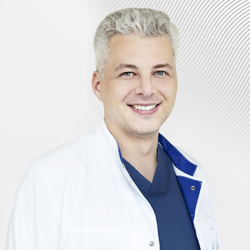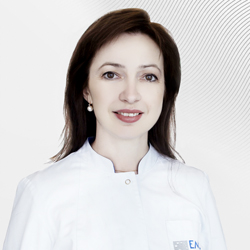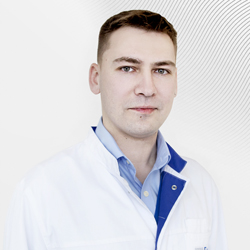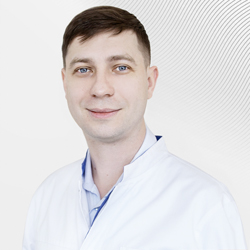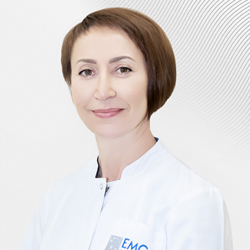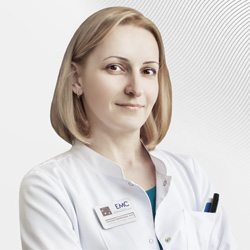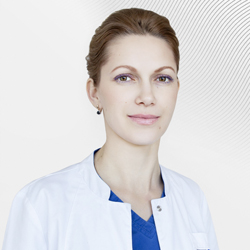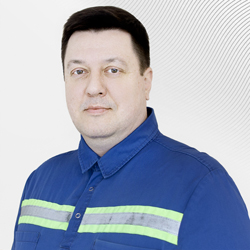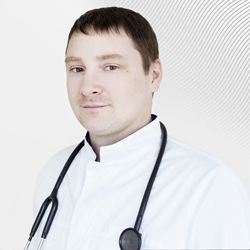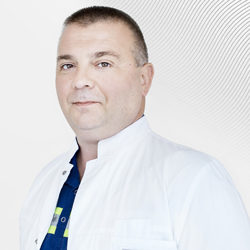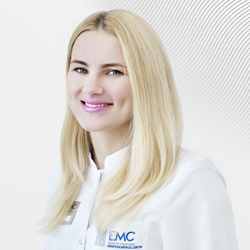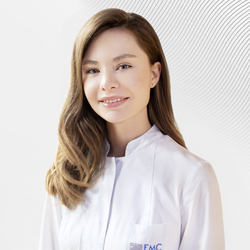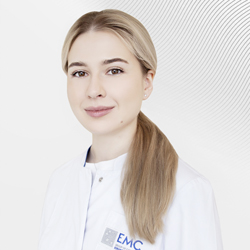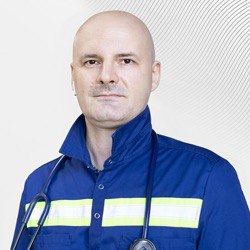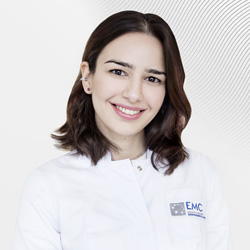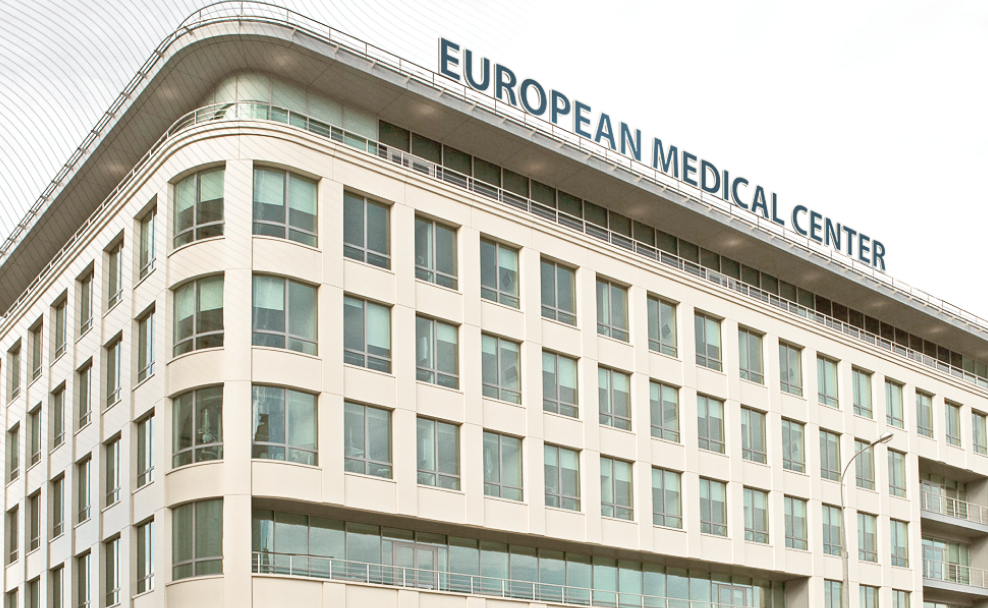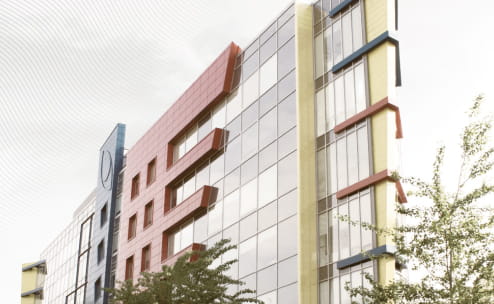Sometimes it is hard to come to the clinic to see the doctor, but the immediate attention of a specialist is needed. In such cases, the best solution is to request a doctor for a house call. In the Emergency Department at EMC a team of highly qualified doctors are on call and are ready at any moment to come to the rescue of both adults and children for:
- emergencies (hypertensive crisis, myocardial infarction, stroke, sudden loss of consciousness, acute pain, injury, etc.);
- general medical problems (cardiac problems, lung problems, digestive system problems, etc.);
- surgical problems (acute appendicitis, intestinal obstruction, renal colic);
- injuries (to stop bleeding, place any type of dressing, immobilization and transport, etc.);
- neurological disorders (acute back pain, migraine, impending cerebrovascular accident, etc.);
- pediatric illnesses (false croup, viral and bacterial infections, digestive disorders).
DOCTORS ON DUTY PROVIDE CARE TO CLINIC PATIENTS AROUND THE CLOCK, 7 DAYS A WEEK
- Patients are seen in EMC's Department of Emergency and Urgent Care on a first-come-first-serve basis. The doctor on duty determines whether the severity of a patient's condition necessitates that they be seen before other patients;
- Patients with life-threatening conditions are seen immediately!
- The doctor on duty is a general practice physician and in 90% of cases can provide the necessary medical care;
- In other cases, when an urgent specialist consult is required, the doctor on call provides emergency care until the specialist arrives;
- The doctor on duty calls a specialist physician only after examining the patient!
STUDIES AVAILABLE AROUND THE CLOCK
- The full range of diagnostic studies is available around the clock (x-ray, CT, MRI, ultrasound, diagnostic laboratory tests, etc.);
- It is also possible to undergo operative interventions, gastroscopy, colonoscopy, urgent gynecologic procedures, and the placement of immobilizing bandages for injuries.
In addition to physician house calls, you can also call a visiting nurse to help carry out treatments your physician has prescribed. The operating rooms and inpatient hospital at EMC are ready at any time to accept patients and provide the entire range of medical care, including surgery and trauma.
For emergency care of children at home it is possible to request a pediatrician house call. Experienced physicians from the Pediatric Department at EMC are ready to come to the homes of their little patients.
AROUND-THE-CLOCK AMBULANCE
In many cases, a person's life and health depend on how quickly and professionally emergency medical services are provided. In emergency situations when a person's life is in danger, there is no time to search for a clinic and a doctor to assist; calling an ambulance is the only right decision. You only need to dial a number. In urgent cases, when a person's life is not in danger, you can always contact us and we will do everything possible to quickly send a family doctor to your home, who can provide a full range of therapeutic and diagnostic measures and ensure the patient's recovery.
EMC's Around-the-Clock Ambulance is a professional approach with smoothly-running interactions between all participants. All of the specialists who travel to patients on calls in Moscow or the Moscow Region have the respective qualifications and years of experience in emergency medicine. We are acutely aware of our responsibility for the health and lives of our patients. Our emergency doctors have the necessary knowledge and skills to solve the most difficult health problems. A team of specialists quickly decides on the care required, providing it on the scene with the appropriate diagnostic equipment and medicines.
OUR EMERGENCY DOCTORS CAN, AS APPROPRIATE:
- Make a rapid diagnosis,
- Check blood sugar (with a glucometer),
- Perform a urinalysis (a rapid study),
- Perform an electrocardiogram (ECG),
- Take blood to check for markers of an acute myocardial infarction,
- Provide emergency medication therapy, if needed.
As part of providing emergency medical care, transport of the patient is also possible, either by ground ambulance or air ambulance (plane or helicopter); hospitalization can be organized at EMC; and emergency care for children, including newborns can also be provided.
WHEN TO CALL AN AMBULANCE:
- You suspect that a person's life is in danger;
- You have found someone unconscious;
- Someone is having difficulty breathing;
- Someone has fainted, feels sudden weakness and cannot move;
- Someone is experiencing emotional distress and is acting in a way which presents an immediate danger to himself or others;
- Someone is experiencing severe pain;
- You notice sudden dysfunction of an organ or organ system;
- Someone has been injured;
- Someone is bleeding severely;
- A woman has gone into labor.
All EMC ambulances are equipped with everything necessary for safe and comfortable patient transport, including patients in critical condition. EMC Ambulance has a critical care team staffed with pediatricians and experienced emergency physicians who are able to provide high quality care in emergency situations.
ADVANTAGES OF A FAMILY DOCTOR HOUSE CALL:
- you can call a doctor to your home at any time and be sure that the doctors from the department will do everything possible to come as quickly as possible;
- all EMC specialists have extensive experience in providing medical care at home and in organizing inpatient hospitalization;
- if surgical intervention is necessary, emergency care at home, further transport for surgery to a hospital or outpatient department can be arranged;
- all vehicles are equipped with the necessary medical equipment, a complete set of tools to provide medical aid and careful transport of patients;
- the ability to transport patients in Moscow and the Moscow region.
There are times when you are away from home, for example in the countryside or on vacation abroad, and the need for health care arises unexpectedly. Solving the issue of transportation to the hospital on your own in this situation can be quite difficult.
The Department of Emergency and Urgent Care provides emergency ground and air medical transportation. The main factors that determine the mode of transportation are the nature of the illness, the patient's age, the distance from the place where qualified care can be provided and a few other variables.
GROUND TRANSPORT OF PATIENTS
Our vehicles are equipped with modern medical equipment, which allows us to provide first aid and resuscitation. This type of equipment allows us to transport extremely ill patients in critical condition.
The vehicles are equipped with special hydraulic carriers, which can partially and completely stabilize the patient, pressure mattresses and tires and transferring boards. This equipment ensures adequate immobilization on long and extended-distance transport of patients with severe injuries and conditions without worrying about road conditions in distant regions. Drip IV pumps and infusers allow extended and accurate IV therapy during a medical evacuation.
All vehicles are equipped with systems for monitoring vital functions, diagnostic equipment and life-support systems. Each vehicle has a complete set of all medications necessary for providing emergency medical care.
AIR TRANSPORT OF PATIENTS
Depending on the situation and the severity of the patient's condition, we have various types of air transport we can organize:
- Transport by specialized medical aircraft which are equipped with systems for monitoring vital functions, resuscitation, etc. This type of transport is used in critical situations when the patient's condition is very serious, and the situation is urgent.
- Transport by medical helicopter (used for relatively small distances and in difficult-to-reach areas).
- Transport by a cargo plane (with the ambulance on board the plane, which allows us to evacuate the patient with critical care transport without changing the life support equipment and under the constant supervision of a doctor).
- Transport by regular or charter airlines. Transport is subject to the air transport rules of the airline companies. If appropriate, special medical equipment and a stretcher are used.
35, ul. Schepkina, Moscow, 129090
7, Orlovsky pereulok, Moscow, 129090
Our vehicles are equipped with modern medical equipment, which allows us to provide first aid and resuscitation. This type of equipment allows us to transport extremely ill patients in critical condition.
The vehicles are equipped with special hydraulic carriers, which can partially and completely stabilize the patient, pressure mattresses and tires and transferring boards. This equipment ensures adequate immobilization on long and extended-distance transport of patients with severe injuries and conditions without worrying about road conditions in distant regions. Drip IV pumps and infusers allow extended and accurate IV therapy during a medical evacuation.
All vehicles are equipped with systems for monitoring vital functions, diagnostic equipment and life-support systems. Each vehicle has a complete set of all medications necessary for providing emergency medical care.
AIR TRANSPORT OF PATIENTS
Depending on the situation and the severity of the patient's condition, we have various types of air transport we can organize:
- Transport by specialized medical aircraft which are equipped with systems for monitoring vital functions, resuscitation, etc. This type of transport is used in critical situations when the patient's condition is very serious, and the situation is urgent.
- Transport by medical helicopter (used for relatively small distances and in difficult-to-reach areas).
- Transport by a cargo plane (with the ambulance on board the plane, which allows us to evacuate the patient with critical care transport without changing the life support equipment and under the constant supervision of a doctor).
- Transport by regular or charter airlines. Transport is subject to the air transport rules of the airline companies. If appropriate, special medical equipment and a stretcher are used.
35, ul. Schepkina, Moscow, 129090
7, Orlovsky pereulok, Moscow, 129090
 Write to WhatsApp
Write to WhatsApp